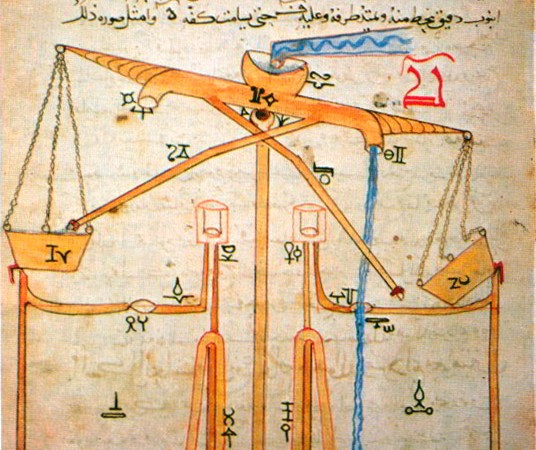What shall a machine think when artificial intelligence comes to be? Wipe out humanity, make us slaves, or simply be? I put forth an argument for why the machine may be more spiritual than we believe it is capable of.
Which road?
I’m at a crossroads. There’s a decision I have to make and I’m having difficulty with it.
There is change I would like to make happen but regardless of success, I know such change is pointless.
It comes down to this: If you know the world is going to end, whether it is a hundred, thousand, million or billion years from now, and if you know the galaxy will implode and the expanding universe will stretch into vast darkness so there are no stars to see, if you know this in your heart and if you accept this infinitude of the universe, what difference does our present day action make?
I want to see deserts turn into green meadows; I want to see forests grow from coast-to-coast; I want to see peace, Epicurean happiness and self-sustained communities live with Nature, not against her.
And far from just lofty ideals, there are practical tools I’d want to implement such change with: Warka water systems which capture humidity and condense water, bringing it to the soil without electricity or mechanisation; Masanobu Fukuoka’s natural farming method of random seeding and allowing Nature to do her work for us; and John Middleton-Murry’s co-operative structure to distribute capital and promote equality.
These are the things I want to achieve, yet, what’s the point if it’s all going to end?
Should we not enjoy what we’ve got, even if it is just glass and concrete? Should we not follow Siddhartha’s lead and find beauty and happiness in the river of time?
Philosophy tears me both ways.
If I choose to fight and to make change, I will be an example of what Nietzsche, the 19th Century German philosopher, observed: that I probably have narcissistic motive and that I will spend the rest of my life trying to find philosophical reason to defend it.
Nietzsche would be right. Selfishly I want to turn deserts into green meadows because I want to enjoy beauty. Selfishly I want to employ natural farming so that I do not depend on others. Selfishly I want to encourage co-operative ownership so that we can all feel secure and stop chasing ‘growth’, the thing I identify to be the main cause of a dull, fist-like pressure boring down on my skull.
When I try to be happy with what I’ve got, the Epicurean tranquility is interrupted by Facebook, astronomical rent payments and the need to work more to keep it.
Try as I might, I can’t help but notice Herman Hesse’s Siddhartha owned the farm and river on which he was a wise ferryman; Epicurus had slaves; and even Marcus Aurelius, the last of the ‘great’ Roman emperors, torchbearer of Stoicism and seeing things for what they are, blood, guts and mud, was at least a Roman Emperor. They had it good.
My feeling of doubt as I stand at the crossroads can best be described through sharing a story of Scipio, a Roman General, once told by Cicero, the Roman politician.
Scipio dreamt he was in the heavens speaking with his father. Looking down upon earth his dead father said (paraphrased and translated by Robert Harris),
“I gazed in every direction and all appeared wonderfully beautiful. There were stars which we never see from earth, and they were all larger than we have ever imagined. The starry spheres were much greater than the earth; indeed the earth itself seemed to me so small that I was scornful of our empire, which covers only a single point, as it were, upon its surface.”
It was a Stoic message to his son, warning him that success, fame and legacy are all short-lived. That one should look up to the stars and marvel in their beauty. That in life, one should be true to their own reason and moral principles and that that was the way to the heavens. Fight if you must but be mindful of its true insignificance.
Scipio took heed of the advice and fought for the Roman empire in Africa, following what he believed to be the morally correct path of action. He was incredibly successful and in 146 BC took the city of Carthage.
Yet, according to the historian Polybius, who was present at the time, was said to have surveyed the wreckage of the once mighty city and wept. There and then, he prophesised, “It is glorious, but I have a dread foreboding that some day the same doom will be pronounced upon my own country.”
Fighting for what you think is right does not mean you are right. Nature is ruthlessly indifferent and regardless of Scipio’s success, his father will prove to be correct with his words, “the starry spheres were much greater than the earth”.
In writing that last sentence a new thought has come to mind: inaction is action. There is no difference. Whichever road I take, I still take a road. I still breathe air, I still drink water. I still sleep and shit. On one route I sit and I enjoy concrete and glass – and it does not matter. On the other route I pursue change – and it does not matter. Energy is spent either way. Calories are burnt, mental effort applied. I may as well toss a coin if it were a solely individual endeavour but the crossroads has implications for others. Pursue change and it will affect others, do nothing and it will not. As the changes are what I believe to be beneficial to others, and as the insignificance of our lives make them all the more significant, I must follow that path for there is difference to be found in Nature’s indifference.
I must fight for change.


